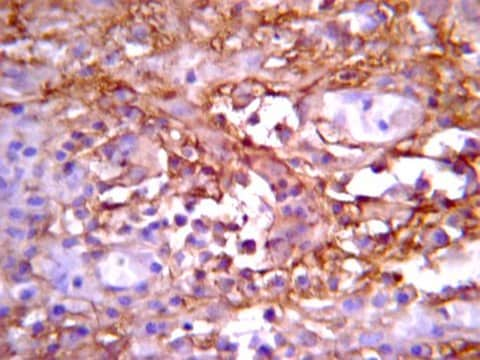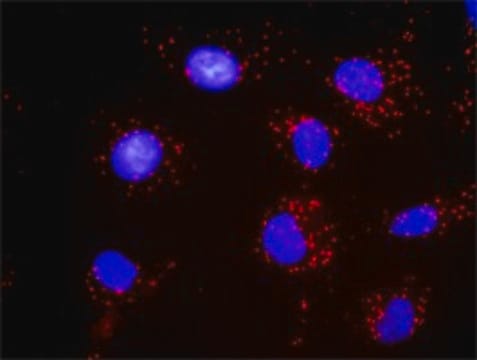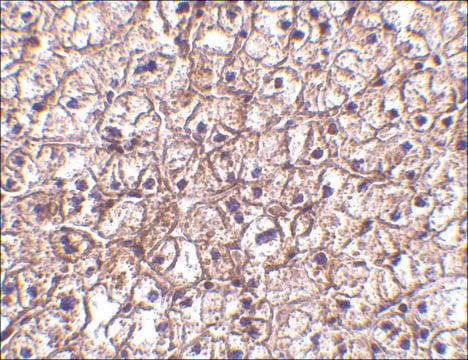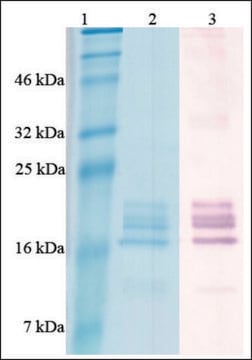SAB4200024
Anti-Notch 1 antibody, Rat monoclonal
clone ICN 5B5, purified from hybridoma cell culture
Sinónimos:
Anti-Notch homolog 1, translocation-associated (Drosophila), Anti-TAN1, hN1, neurogenic locus notch homolog protein 1, Anti-Translocation-associated notch protein, Monoclonal Anti-Notch 1 antibody produced in rat
About This Item
Productos recomendados
biological source
rat
conjugate
unconjugated
antibody form
purified from hybridoma cell culture
antibody product type
primary antibodies
clone
ICN 5B5, monoclonal
form
buffered aqueous solution
mol wt
antigen ~120 kDa
species reactivity
human
packaging
antibody small pack of 25 μL
concentration
~1.0 mg/mL
technique(s)
western blot: 2-4 μg/mL using whole extract of human Jurkat cells and developing with a sensitive film
isotype
IgG2b
UniProt accession no.
shipped in
dry ice
storage temp.
−20°C
target post-translational modification
unmodified
Gene Information
human ... NOTCH1(4851)
General description
Application
Biochem/physiol Actions
Physical form
Disclaimer
¿No encuentra el producto adecuado?
Pruebe nuestro Herramienta de selección de productos.
Optional
Storage Class
10 - Combustible liquids
flash_point_f
Not applicable
flash_point_c
Not applicable
Certificados de análisis (COA)
Busque Certificados de análisis (COA) introduciendo el número de lote del producto. Los números de lote se encuentran en la etiqueta del producto después de las palabras «Lot» o «Batch»
¿Ya tiene este producto?
Encuentre la documentación para los productos que ha comprado recientemente en la Biblioteca de documentos.
Nuestro equipo de científicos tiene experiencia en todas las áreas de investigación: Ciencias de la vida, Ciencia de los materiales, Síntesis química, Cromatografía, Analítica y muchas otras.
Póngase en contacto con el Servicio técnico






